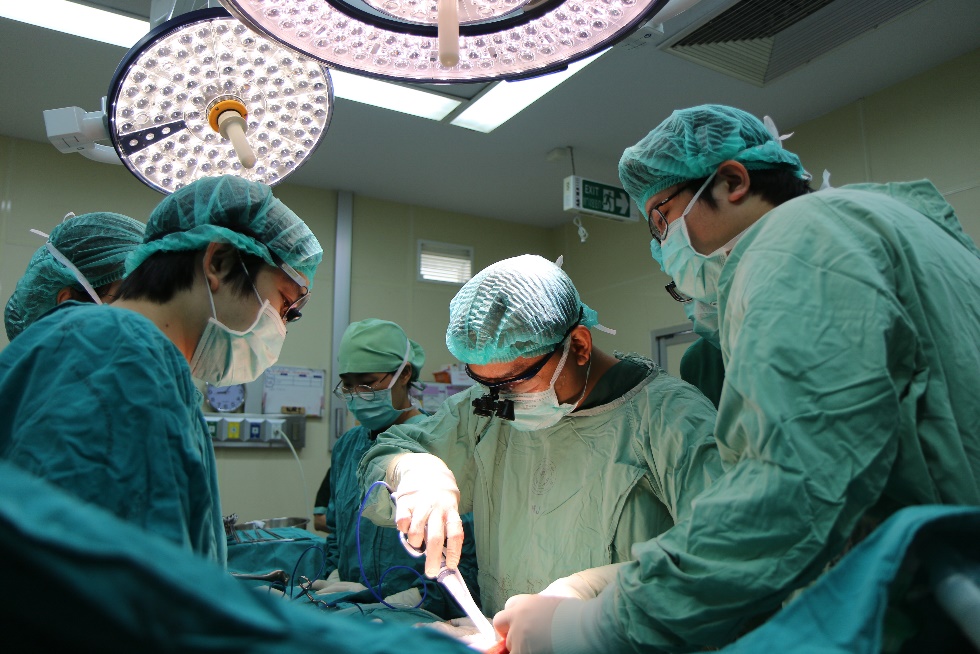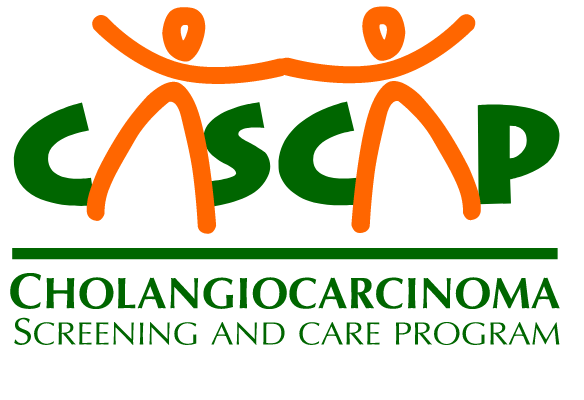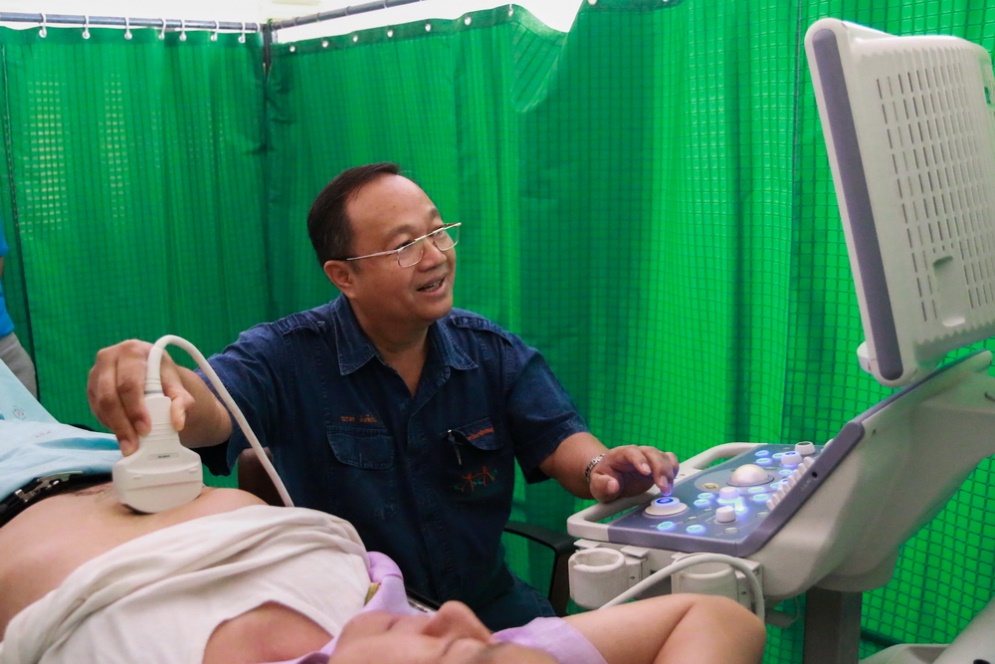สถาบันวิจัยมะเร็งท่อน้ำดี
Room 5307, 3rd Floor Wadwichakarn Building, Faculty of Medicine, Khon Kaen University, Mittraphap road, Nai Muang Subdistrict, Muang District, Khon Kaen, 40002 Thailand
Tel.043-203769
Email: carikkuthailand@gmail.com
https://cascap.kku.ac.th/
Tel.043-203769
Email: carikkuthailand@gmail.com
https://cascap.kku.ac.th/

Background
Liver fluke infestation and cholangiocarcinoma (CCA) remain one of the major health problems of populations in the northeast of Thailand, as well as the neighboring countries of Laos, Vietnam and Cambodia. In Thailand alone, over 6 million people harbor the liver fluke (Opisthorchis viverrini). Infection with this parasite is the major risk factor for developing CCA. Each year 20,000 people develop CCA in Thailand alone, most of whom come from the northeast of the country.
Cholangiocarcinoma Research Institute (CARI) works under the Office of the President of Khon Kaen University to support national Cholangiocarcinoma (CCA) eradication including coordinating with multiple organizations in promoting research and knowledge in this regard since 2002. In 2014, CARI undertakes “Cholangiocarcinoma Screening and Care Program (CASCAP)”, which is the national wide program aims to reduce the incidence of liver fluke infection and mortality of CCA in Thailand. This project involves developing a public health system and innovation for health promotion, disease prevention, disease screening, diagnosis and care of patients with liver fluke infection and CCA using an integrated operating model by collaborating with relevant network partners, nationally and internationally, from both government and public sectors. Importantly, the CASCAP program has successfully negotiated with the Government of Thailand to launch a 10 years strategic plan from 2016-2026 for the elimination of the liver fluke and CCA. Further, CARI is now also in the initiating step to expand the CASCAP program to the GMS area starting from Lao PDR where facing the same problem.
Moreover, CARI has the biggest CCA biobank in the world, comprising both samples from CCA patients as well as from the risk population from regional communities. We have produced more than 500 international, peer-reviewed publications and more than 150 graduate students. The Center is currently heavily involved in multidisciplinary research which is summarized below:
- Novel approaches for risk assessment of CCA and long-term measures for the prevention and control of opisthorchiasis in endemic communities
- Carcinogenesis of CCA caused by infection and inflammation in order to develop prevention and therapeutic approaches
- The development of treatment and care approaches for CCA patients to improve their quality of life
- Development of a new diagnostic platform for CCA in the northeast of Thailand

Director
Assoc. Prof. Dr. Narong Khuntikeo
Cholangiocarcinoma Research Institute (CARI) and Department of Surgery, Faculty of Medicine, Khon Kaen University
Email:
Tel:
Research Team
- Prof. Attapol Titapun
- Prof. Taratip Srisuk
- Prof. Ake Pugkhem
- Prof. Vor Luvira
- Apiwat Jarearnrat
- Prof. Auemkhae Sukprasert
- Prof. Jarin Chindaprasirt
- Nittaya Chamadol
- Wanlop Laopaiboon
- Prof. Warinthorn Phuttharak
- Prof. Daris Teerakulpisuth
- Prof. Supinda Koonmee
- Assoc.Sakkarn Sangkhamanon
- Prakasit Sa-ngiamwibool
- Raksawan Deenonpoe
- Sasithorn Watcharadetwittaya
- Prof. Nisana Namwat
- Prof. Watcharin Loilome
- Prof. Kanlayanee Sawanyawisuth
- Prof. Kulthida Vaeteewoottacharn
- Prof. Atit Silsirivanit
- Prof. Raynoo Thanan
- Prof. Chadamas Sakonsinsiri
- Jutarop Phetcharaburanin
- Poramate Klanrit
- Sukanya Luang
- Worachart Lert-itthiporn
- Charupong Saengboonmee
- Paiboon Sithithaworn
- Somchai Pinlaor
- Thidarut Boonmars
- Nuttanan Hongsrichan
- Chatanan Eamudonkarn
- Veerapol Kukongviriyapan
- Prof. Aumduen Prawan
- Prof. Laddawan Senggunprai
- Prof. Sarinya Kongpetch
- Prof. Wunchana Seubwai
- Temduang Limpaiboon
- Prof. Chanvit Leelayuwat
- Prof. Siriporn Proungvitaya
- Patcharee Jearanaikoon
- Prof. Porntip Pinlaor
- Prof. Anchalee Techasen
- Apinya Jusakul
- Prof. Bandit Thinkhamrop
- Prof. Wittaya Ngeontae
- Prem Junsawang
- Thanapong Intharah
- Arunnit Boonrod
- D Arporn Wangwiwatsin
- Prof. Vispat Chaichuay
- Prof. Teerachai Nethanomsak
- Prof. Ladda Silanoi
- Prof. Piyawan Srisuruk
- Prof.Angkana Tungkasamit
- Prof.Putcharee Junpeng
- Suchat Thangsathirasima
- Prof. Dr. Thidaratana Lertwittayakul
- Asst.Prof.Dr. Chittanon Buranachai
Recent Publication
- Wangboon C, Worasith C, Thanan R, Eamudomkarn C, Techasen A, Sithithaworn J, Loilome W, Chamadol N, Pinlaor S, Jumnainsong A, Yongvanit P, Khuntikeo N, Bethony JM, Sithithaworn P. Evaluation of a short term effect of praziquantel treatment in opisthorchiasis-induced hepatobiliary inflammation by urinary 8-oxodG. Acta Trop. 2019 Jan;189:124-128. (IF=2.509, Q1)
- Reunthip S, Eamudomkarn C, Techasen A, Wangboon C, Sithithaworn J, Bethony JM, Itoh M, Sithithaworn P. Accuracy of Urine and Serum Assays for the Diagnosis of Strongyloidiasis by Three Enzyme-Linked Immunosorbent Assay Protocols. Am J Trop Med Hyg. 2019 Jan;100(1): 127-129. (IF=2.564, Q2)
- Charoensuk L, Subrungruang I, Mungthin M, Pinlaor S, Suwannahitatorn P. Comparison of stool examination techniques to detect Opisthorchis viverrini in low intensity infection. Acta Trop. 2019 Mar;191:13-16. doi: 10.1016/j. Acta Trop. 2018.12.018. (IF=2.509, Q1)
- Toomjeen P, Phanchai W, Choodet C, Chompoosor A, Thanan R, Sakonsinsiri C, Puangmali T. Designing an Aptasensor Based on Cysteamine-Capped AuNPs for 8-Oxo-dG Detection: A Molecular Dynamics Approach and Experimental Validation. J Phys Chem B. 2019 Feb 7;123(5):1129-1138. (IF=3.146, Q2)
- Nawrocki CC, Kiatsopit N, Namsanor J, Sithithaworn P, Carlton EJ. Culture of fecal indicator bacteria from snail intestinal tubes as a tool for assessing the risk of Opisthorchis viverrini infection in Bithynia snail habitat. Parasit Vectors. 2019 Jan 30;12(1):66.(IF=3.163, Q1)
- Worasith C, Wangboon C, Duenngai K, Kiatsopit N, Kopolrat K, Techasen A, Sithithaworn J, Khuntikeo N, Loilome W, Namwat N, Yongvanit P, Carlton EJ, Sithithaworn P. Comparing the performance of urine and copro-antigen detection in evaluating Opisthorchis viverrini infection in communities with different transmission levels in Northeast Thailand. PLoS Negl Trop Dis. 2019 Feb 8;13(2):e0007186. (IF= 4.367, Q1)
- Boueroy P., Duenngai K., Eamudomkarn C., Sripan P., Boonmars T., Pumhirunroj B., Artchayasawat A., Songsri J., Chomphumee K., Rattanasuwan P, Laummaunwai P, Khueangchiangkhwang S., Boonjaraspinyo S. Effect of Temperature on the Killing of Opisthorchis viverrini Eggs In Vitro. Korean J Parasitol. 2019;57(1):49-53. (IF=1.207, Q3)
- Wasenang W, Chaiyarit P, Proungvitaya S, Limpaiboon T. Serum cell-free DNA methylation of OPCML and HOXD9 as a biomarker that may aid in differential diagnosis between cholangiocarcinoma and other biliary diseases. Clin Epigenetics. 2019 Mar 4;11(1):39. doi: 10.1186/ s13148-019-0634-0. (IF=6.091, Q1)
- Silsirivanit A, Phoomak C, Teeravirote K, Wattanavises S, Seubwai W, Saengboonmee C, Zhan Z, Inokuchi JI, Suzuki A, Wongkham S. Overexpression of HexCer and LacCer containing 2-hydroxylated fatty acids in cholangiocarcinoma and the association of the increase of LacCer (d18:1-h23:0) with shorter survival of the patients. Glycoconj J. 2019 Mar 19. doi: 10.1007/s10719-019-09864-4. (IF=2.548 Q2)
- Kidoikhammouan S, Seubwai W, Silsirivanit A, Wongkham S, Sawanyawisuth K, Wongkham C. Blocking of methionine aminopeptidase-2 by TNP-470 induces apoptosis and increases chemosensitivity of cholangiocarcinoma. J Cancer Res Ther. 2019 Jan-Mar; 15(1):148-152. (IF=0.842, Q3)
- Tuponchai P, Kukongviriyapan V, Prawan A, Kongpetch S, Senggunprai L. Myricetin ameliorates cytokine-induced migration and invasion of cholangiocarcinoma cells via suppression of STAT3 pathway. J Cancer Res Ther. 2019 Jan-Mar;15(1):157-163. (IF=0.842, Q3)
- Thinkhamrop K, Khuntikeo N, Sithithaworn P, Thinkhamrop W, Wangdi K, Kelly MJ, Suwannatrai AT, Gray DJ. Repeated praziquantel treatment and Opisthorchis viverrini infection: a population – based cross-sectional study in northeast Thailand. Infect Dis Poverty. 2019 Mar 20;8(1):18. doi: 10.1186/s40249-019-0529-5. (IF=2.708, Q2)
- Sittithumcharee G, Suppramote O, Vaeteewoottacharn K, Sirisuksakun C, Jamnongsong S, Lapanuwat P, Suntiparpluacha M, Matha A, Chusorn P, Buraphat P, Kakanaporn C, Changkeaw K, Silsirivanit A, Korphaisarn K, Limsrichamrern S, Tripatara P, Pairojkul C, Wongkham S, Sampattavanich S, Okada S, Jirawatnotai S. Dependency of Cholangiocarcinoma on Cyclin D-Dependent Kinase Activity. Hepatology. 2019 May 11. doi: 10.1002/ hep.30704. (IF=14.079, Q1)
- Chamadol N, Khuntikeo N, Thinkhamrop B, Thinkhamrop K, Suwannatrai AT, Kelly M, Promthet S. Association between periductal fibrosis and bile duct dilatation among a population at high risk of cholangiocarcinoma: a cross-sectional study of cholangiocarcinoma screening in Northeast Thailand. BMJ Open. 2019 Mar 20;9(3): e023217. (IF=2.413, Q2)
- Promraksa B, Phetcharaburanin J, Namwat N, Techasen A, Boonsiri P, Loilome W. Evaluation of anticancer potential of Thai medicinal herb extracts against cholangiocarcinoma cell lines. PLoS One. 2019 May 23;14(5):e0216721.(IF-2.766, Q2)
- Vaeteewoottacharn K, Pairojkul C, Kariya R, Muisuk K, Imtawil K, Chamgramol Y, Bhudhisawasdi V, Khuntikeo N, Pugkhem A, Saeseow OT, Silsirivanit A, Wongkham C, Wongkham S, Okada S. Establishment of Highly Transplantable Cholangiocarcinoma Cell Lines from a Patient-Derived Xenograft Mouse Model. Cells. 2019 May 23;8(5). pii: E496. doi: 10.3390/cells8050496. (IF=5.656, Q1)
- Saisomboon S, Kariya R, Vaeteewoottacharn K, Wongkham S, Sawanyawisuth K, Okada S. Antitumor effects of flavopiridol, a cyclin-dependent kinase inhibitor, on human cholangiocarcinomain vitroand in an in vivo xenograft model. Heliyon. 2019 May 9;5(5): e01675. (SNIP=0.634, Q1)
- Sanmai S, Proungvitaya T, Limpaiboon T, Chua-On D, Seubwai W, Roytrakul S, Wongkham S, Wongkham C, Somintara O, Sangkhamanon S, Proungvitaya S. Serum pyruvate dehydrogenase kinase as a prognostic marker for cholangiocarcinoma. Oncol Lett. 2019 Jun;17(6):5275-5282. (IF=1.871, Q3)
- Forrer A, Khieu V, Vounatsou P, Sithithaworn P, Ruantip S, Huy R, Muth S, Odermatt P. Strongyloides stercoralis: Spatial distribution of a highly prevalent and ubiquitous soil-transmitted helminth in Cambodia. PLoS Negl Trop Dis. 2019 Jun 20;13(6):e0006943. doi: 10.1371/journal. pntd.0006943. (IF=4.367, Q1)
- Wasenang W, Puapairoj A, Settasatian C, Proungvitaya S, Limpaiboon T. Overexpression of polycomb repressive complex 2 key components EZH2/SUZ12/EED as an unfavorable prognostic marker in cholangiocarcinoma. Pathol Res Pract. 2019 Jul;215(7):152451.(IF=1.794, Q3)
- Duangkumpha K, Stoll T, Phetcharaburanin J, Yongvanit P, Thanan R, Techasen A, Namwat N, Khuntikeo N, Chamadol N, Roytrakul S, Mulvenna J, Mohamed A, Shah AK, Hill MM, Loilome W. Discovery and Qualification of Serum Protein Biomarker Candidates for Cholangiocarcinoma Diagnosis. J Proteome Res. 2019 Jul 16. doi: 10.1021/acs.jproteome.9b00242. (IF=3.780, Q1)
- Chaiprasert T, Armartmuntree N, Techasen A, Sakonsinsiri C, Pinlaor S, Ungarreevittaya P, Khuntikeo N, Namwat N, Thanan R. Roles of Zinc Finger Protein 423 in Proliferation and Invasion of Cholangiocarcinoma through Oxidative Stress. Biomolecules. 2019 Jul 7;9(7). pii: E263. doi: 10.3390/biom9070263. (IF=4.694, Q1)
- Buranrat B, Prawan A, Senggunprai L, Kukongviriyapan V. Alendronate blocks human cholangiocarcinoma cell proliferation and migration. Trop J Pharm Res. 2019 Jun; 18(6): 1179-1184. Doi: 10.4314/tjpr.v18i6.5. (IF=0439, Q3)
- Wandee J, Prawan A, Senggunprai L, Kongpetch S, Kukongviriyapan K. Metformin sensitizes cholangiocarcinoma cell to cisplatin – induced cytotoxicity through oxidative stress mediated mitochondrial pathway. Life Sciences. 2019 Jan 15: 217; 155-163. (IF=3.448, Q2)
- Choodet C, Toomjeen P, Phanchai W, Matulakul P, Thanan R, Sakonsinsiri C, Puangmali T. Combined in silico and in vitro study of an aptasensor based on citrate-capped AuNPs for naked-eye detection of a critical biomarker of oxidative stress. RSC Advances. 2019 June 9: 9(31); 17592-17600. (IF=3.049, Q2)
- Duangkumpha K, Stoll T, Phetcharaburanin J, Yongvanit P, Thanan R, Techasen A, Namwat N, Khuntikeo N, Chamadol N, Roytrakul S, Mulvenna J, Mohamed A, Shah AK, Hill MM, Loilome W. Urine proteomics study reveals potential biomarkers for the differential diagnosis of cholangiocarcinoma and periductal fibrosis. PLoS One. 2019 Aug 19;14(8):e0221024. (IF=2.766, Q2)
- Tummanatsakun D, Proungvitaya T, Roytrakul S, Limpaiboon T, Wongkham S, Wongkham C, Silsirivanit A, Somintara O, Sangkhamanon S, Proungvitaya S. Serum Apurinic/Apyrimidinic Endodeoxyribonuclease 1 (APEX1) Level as a Potential Biomarker of Cholangiocarcinoma. Biomolecules. 2019 Aug 26;9(9). pii: E413. (IF=4.694, Q1)
- Okada S, Vaeteewoottacharn K, Kariya R. Application of Highly Immunocompromised Mice for the Establishment of Patient-Derived Xenograft (PDX) Models. Cells. 2019 Aug 13;8(8). pii: E889. (IF=5.656, Q1)
- Suksawat M, Klanrit P, Phetcharaburanin J, Namwat N, Khuntikeo N, Titapun A, Jarearnrat A, Sa-Ngiamwibool P, Techasen A, Loilome W. In vitro and molecular chemosensitivity in human cholangiocarcinoma tissues. PLoS One. 2019 Sep 10;14(9):e0222140. (IF-2.766, Q2)
- Intuyod K, Hahnvajanawong C, Pinlaor P, Pinlaor S. Anti-parasitic Drug Ivermectin Exhibits Potent Anticancer Activity Against Gemcitabine – resistant Cholangiocarcinoma In Vitro. Anticancer Res. 2019 Sep; 39(9):4837-4843. (IF=1.935, Q3)
- Alsaleh M, Leftley Z, Barbera TA, Sithithaworn P, Khuntikeo N, Loilome W, Yongvanit P, Cox IJ, Chamodol N, Syms RR, Andrews RH, Taylor-Robinson SD. Cholangiocarcinoma: a guide for the nonspecialist. Int J Gen Med. 2018 Dec 20;12:13-23. (IF=1.630, Q2)
- Choodetwattana P, Proungvitaya S, Jearanaikoon P, Limpaiboon T. The Upregulation of OCT4 in Acidic Extracellular pH is Associated with Gemcitabine Resistance in Cholangiocarcinoma Cell Lines. Asian Pac J Cancer Prev. 2019 Sep 1;20(9):2745-2748. (IF=2.514, Q3)
- Jamnongkan W, Lebrilla CB, Barboza M, Techasen A, Loilome W, Sithithaworn P, Khuntikeo N, Pairojkul C, Chamadol N, Thanan R, Yongvanit P. Discovery of Serotransferrin Glycoforms: Novel Markers for Diagnosis of Liver Periductal Fibrosis and Prediction of Cholangiocarcinoma. Biomolecules. 2019 Sep 27;9(10). pii: E538. doi: 10.3390/biom9100538. (IF=4.694, Q1)
- Saijuntha W, Sithithaworn P, Kiatsopit N, Andrews RH, Petney TN. Liver Flukes: Clonorchis and Opisthorchis. Adv Exp Med Biol. 2019;1154:139-180. (IF=2.126, Q1)
- Intuyod K, Armartmuntree N, Jusakul A, Sakonsinsiri C, Thanan R, Pinlaor S. Current omics-based biomarkers for cholangiocarcinoma. Expert Rev Mol Diagn. 2019 Oct 1:1-9. doi: 10.1080/14737159.2019.1673162. (IF=3.099, Q1)
- Wattanavises S, Silsirivanit A, Sawanyawisuth K, Cha’on U, Waraasawapati S, Saentaweesuk W, Luang S, Chalermwat C, Wongkham C, Wongkham S. Increase of MAL-II Binding Alpha2,3-Sialylated Glycan Is Associated with 5-FU Resistance and Short Survival of Cholangiocarcinoma Patients. Medicina (Kaunas). 2019 Nov 28;55(12). pii: E761. (IF=1.467, Q3)
- Indramanee S, Sawanyawisuth K, Silsirivanit A, Dana P, Phoomak C, Kariya R, Klinhom-On N, Sorin S, Wongkham C, Okada S, Wongkham S. Terminal fucose mediates progression of human cholangiocarcinoma through EGF/EGFR activation and the Akt/Erk signaling pathway. Sci Rep. 2019 Nov 21;9(1):17266. (IF=4.011, Q1)
- Dana P, Saisomboon S, Kariya R, Okada S, Obchoei S, Sawanyawisuth K, Wongkham C, Pairojkul C, Wongkham S, Vaeteewoottacharn K. CD147 augmented monocarboxylate transporter-1/4 expression through modulation of the Akt-FoxO3-NF-κB pathway promotes cholangiocarcinoma migration and invasion. Cell Oncol (Dordr). 2019 Nov 15. doi: 10.1007/s13402-019-00479-3. (IF=5.020, Q1)
- Detarya M, Sawanyawisuth K, Aphivatanasiri C, Chuangchaiya S, Saranaruk P, Sukprasert L, Silsirivanit A, Araki N, Wongkham S, Wongkham C. The O-GalNAcylating enzyme GALNT5 mediates carcinogenesis and progression of cholangiocarcinoma via activation of AKT/ERK signaling.Glycobiology. 2019 Dec 4. pii: cwz098. doi: 10.1093/glycob/cwz098. (IF=4.194, Q1)
- Namsanor J, Kiatsopit N, Laha T, Andrews RH, Petney TN, Sithithaworn P. Infection Dynamics of Opisthorchis viverriniMetacercariae in Cyprinid Fishes from Two Endemic Areas in Thailand and Lao PDR. Am J Trop Med Hyg. 2019 Nov 4. doi: 10.4269/ajtmh.19-0432. (IF=2.315, Q1)
- Alsaleh M, Barbera TA, Andrews RH, Sithithaworn P, Khuntikeo N, Loilome W, Yongvanit P, Cox IJ, Syms RRA, Holmes E, Taylor-Robinson SD. Mass Spectrometry: A Guide for the Clinician. J Clin Exp Hepatol. 2019 Sep-Oct;9(5):597-606. (SNIP=0.850, Q3)
- Alsaleh M, Sithithaworn P, Khuntikeo N, Loilome W, Yongvanit P, Chamadol N, Hughes T, O’Connor T, Andrews RH, Holmes E, Taylor-Robinson SD. Characterisation of the Urinary Metabolic Profile of Liver Fluke-Associated Cholangiocarcinoma. J Clin Exp Hepatol. 2019 Nov-Dec;9(6):657-675. (SNIP=0.850, Q3)
- Khuntikeo N, Koonmee S, Sa-Ngiamwibool P, Chamadol N, Laopaiboon V, Titapun A, Yongvanit P, Loilome W, Namwat N, Andrews RH, Petney TN, Thinkhamrop K, Chaichaya N, Tawarungruang C, Thuanman J, Thinkhamrop B. A comparison of the proportion of early stage cholangiocarcinoma found in an ultrasound-screening program compared to walk-in patients. HPB (Oxford). 2019 Oct 26. pii: S1365-182X(19)30741-5. (IF=3.047, Q1)
- Piyawajanusorn C, Kittirat Y, Sa-Ngiamwibool P, Titapun A, Loilome W, Namwat N. PRIMA-1METInduces Cellular Senescence and Apoptotic Cell Death in Cholangiocarcinoma Cells. Cancer Genomics Proteomics. 2019 Nov-Dec;16(6):543-552. (IF=3.147, Q1)
- Taron W, Jamnongkan W, Techasen A, Phetcharaburanin J, Namwat N, Sithithaworn P, Khuntikeo N, Mukdasai S, Sayasone S, Loilome W, Ngeontae W. AuNPs-LISA, an efficient detection assay for Opisthorchis viverrini (Ov) antigen in urine. Talanta. 2020 Mar 1;209:120592. doi: 10.1016/j.talanta.2019.120592. (IF=4.916, Q1)
- Alsaleh M, Leftley Z, Barbera TA, Koomson LK, Zabron A, Crossey MME, Reeves HL, Cramp M, Ryder S, Greer S, Prince M, Sithithaworn P, Shariff M, Khuntikeo N, Loilome W, Yongvanit P, Shen YL, Cox IJ, Williams R, Wadsworth CA, Holmes E, Nash K, Taylor-Robinson SD. Characterisation of the Serum Metabolic Signature of Cholangiocarcinoma in a United Kingdom Cohort. J Clin Exp Hepatol. 2020 Jan-Feb;10(1):17-29. (SNIP=0.850, Q3)
- Padthaisong S, Thanee M, Namwat N, Phetcharaburanin J, Klanrit P, Khuntikeo N, Titapun A, Sungkhamanon S, Saya H, Loilome W. Overexpression of a panel of cancer stem cell markers enhances the predictive capability of the progression and recurrence in the early stage cholangiocarcinoma. J Transl Med. 2020 Feb 10;18(1):64. doi: 10.1186/s12967-020-02243-w. (IF=4.098, Q1)
- Buranrat B, Prawan A, Senggunprai L, Kukongviriyapan V. Inhibition of growth and migration of cholangiocarcinoma cells by pamidronate. Exp Ther Med. 2019 Nov;18(5):3977-3983. (IF=1.448, Q2)
- Chanakankun R, Proungvitaya T, Chua-On D, Limpaiboon T, Roytrakul S, Jusakul A, Titapun A, Jarearnrat A, Proungvitaya S. Serum coiled-coil domain containing 25 protein as a potential screening/diagnostic biomarker for cholangiocarcinoma. Oncol Lett. 2020 Jan;19(1):930-942. (IF=1.871, Q3)
- Padthaisong S, Thanee M, Namwat N, Phetcharaburanin J, Klanrit P, Khuntikeo N, Titapun A, Loilome W. A panel of protein kinase high expression is associated with postoperative recurrence in cholangiocarcinoma. BMC Cancer. 2020 Feb 24;20(1):154. (IF=2.933, Q2)
- Saranaruk P, Kariya R, Sittithumcharee G, Boueroy P, Boonmars T, Sawanyawisuth K, Wongkham C, Wongkham S, Okada S, Vaeteewoottacharn K. Chromomycin A3 suppresses cholangiocarcinoma growth by induction of S phase cell cycle arrest and suppression of Sp1‑related anti‑apoptotic proteins. Int J Mol Med. 2020 Apr;45(4):1005-1016. (IF=2.928, Q1)
- Sripa B, Seubwai W, Vaeteewoottacharn K, Sawanyawisuth K, Silsirivanit A, Kaewkong W, Muisuk K, Dana P, Phoomak C, Lert-Itthiporn W, Luvira V, Pairojkul C, Teh BT, Wongkham S, Okada S, Chamgramol Y. Functional and genetic characterization of three cell lines derived from a single tumor of an Opisthorchis viverrini-associated cholangiocarcinoma patient. Hum Cell. 2020 Mar 23. doi: 10.1007/s13577-020-00334-w. (IF=2.333, Q2)
- Thanan R, Kaewlert W, Sakonsinsiri C, Chaiprasert T, Armartmuntree N, Muengsaen D, Techasen A, Klanrit P, Lert-Itthiporn W, Pinlaor S, Pairojkul C. Opposing Roles of FoxA1 and FoxA3 in Intrahepatic Cholangiocarcinoma Progression. Int J Mol Sci. 2020 Mar 5;21(5). pii: E1796. doi: 10.3390/ijms21051796. (IF= 4.183, Q1)
Research Highlight


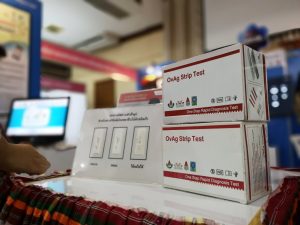
Research Collaborations
- The Thailand Research Fund Thailand Science Research and Innovation
- National Research Council of Thailand
- Bureau of the Budget
- Ministry of Public Health
- Ministry of Agriculture and Cooperatives
- Ministry of Education
- Ministry of Interior
- The Cholangiocarcinoma Foundation of Thailand
- The Siam Commercial Bank Public Company Limited (SCB)
- The Siam Commercial Foundation
- Siam Cement Group (SCG)
- PTT Public Company Limited (PTT)
USA
- George Washington University
- Cholangiocarcnoma Foundation
UK
- Imperial College London
- University College London
- University of Edinburgh
- University of Manchester,
- SOAS University of London
- AMMF
Switzerland
- Swiss Tropical and Public Health Institute
Japan
- University of Tokyo
- Keio University
- Mie University
Singapore
- National University of Singapore
Hong Kong
- The Kadoorie Charitable Fpundation
Lao PDR
- Lao Tropical and Public Health Institute
Cambodia
- National Center for Parasitology Entomology and Malaria Control
Myanmar
- Yangon Specialty Hospital
Research Gallery
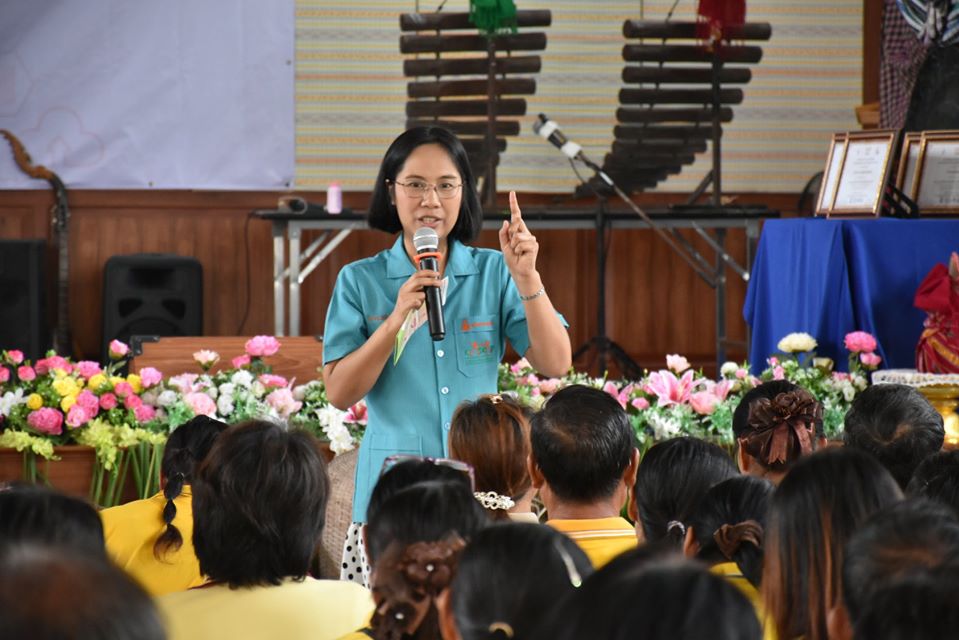

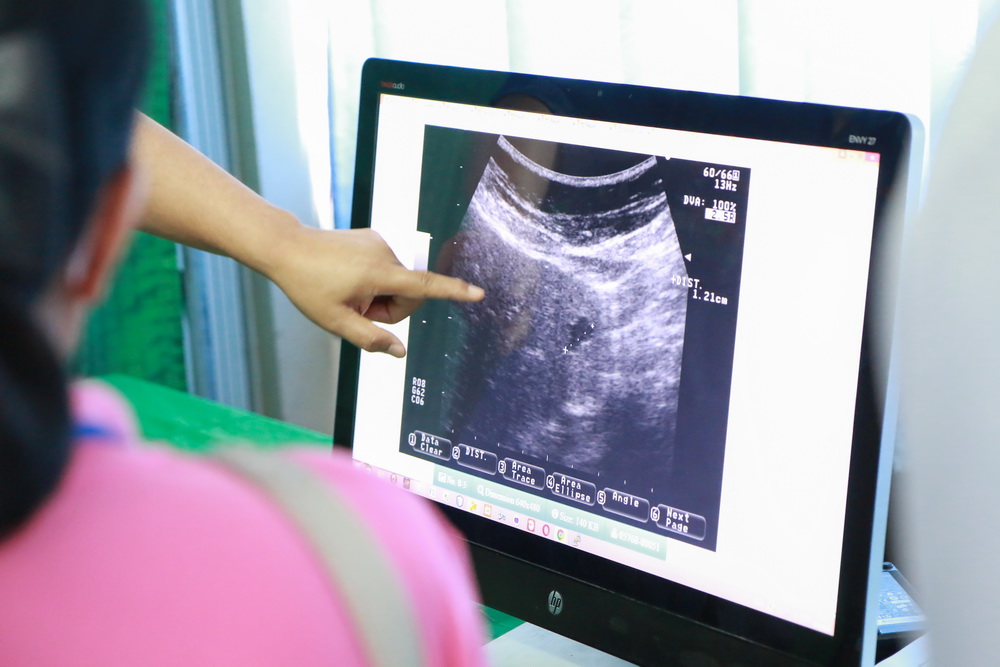
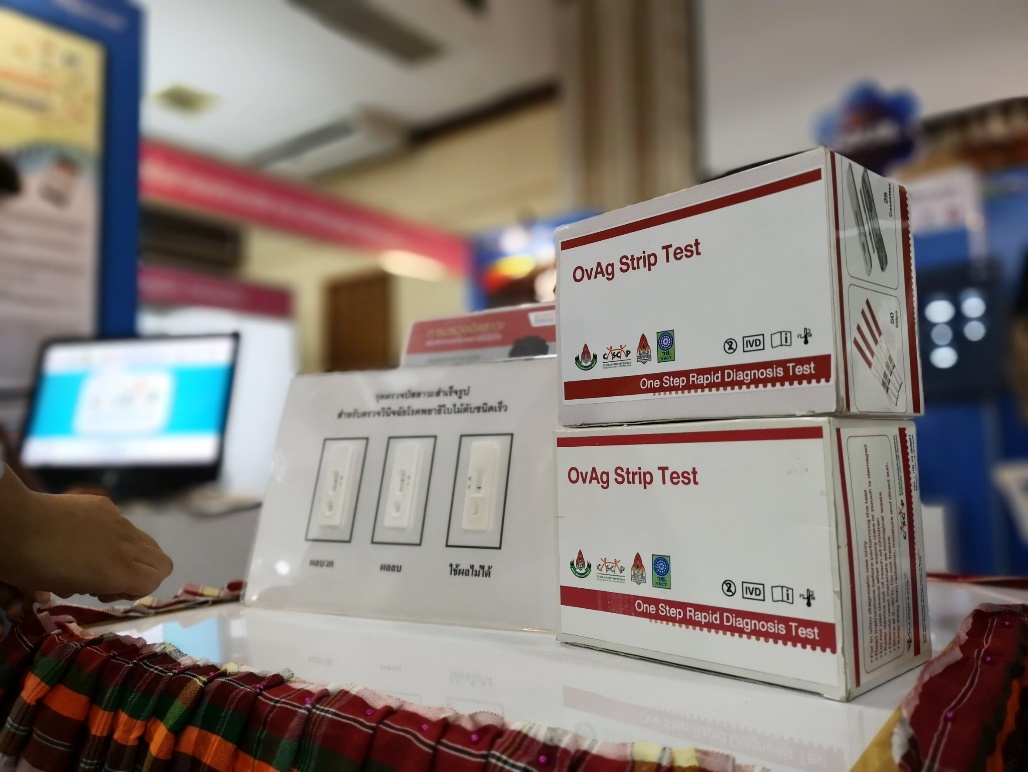
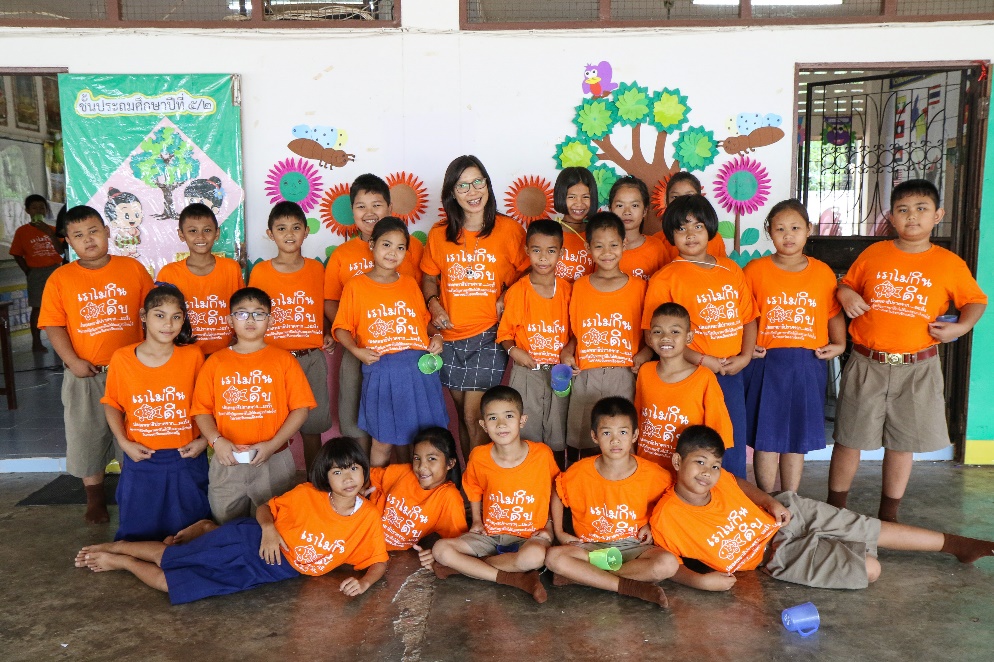

Post Views:
3,020

